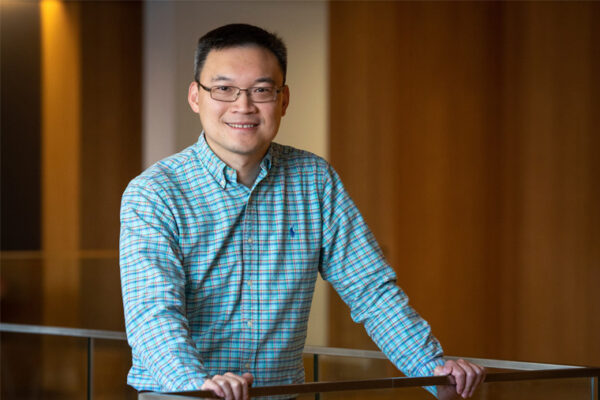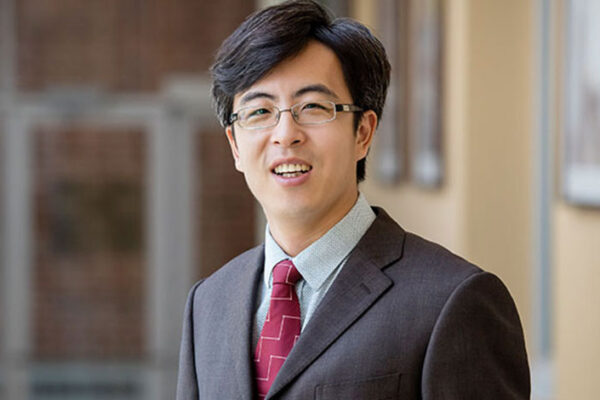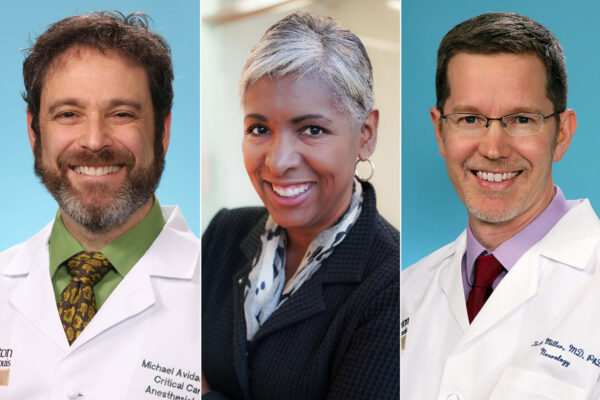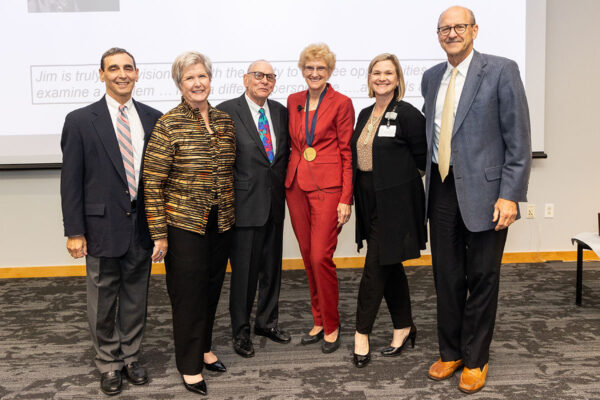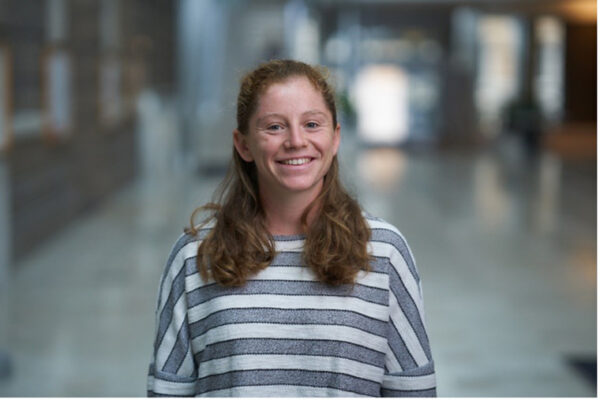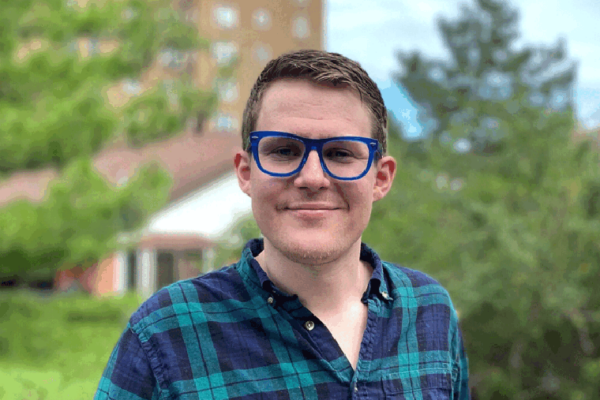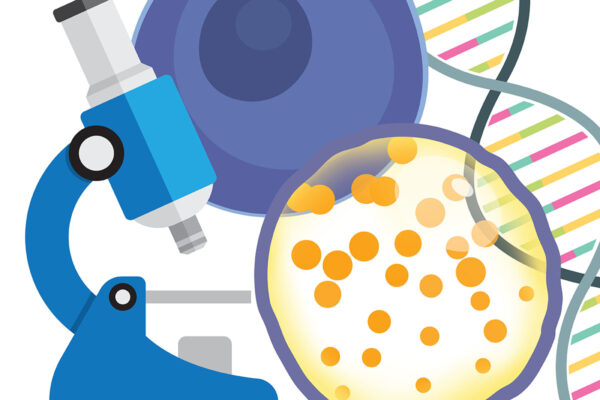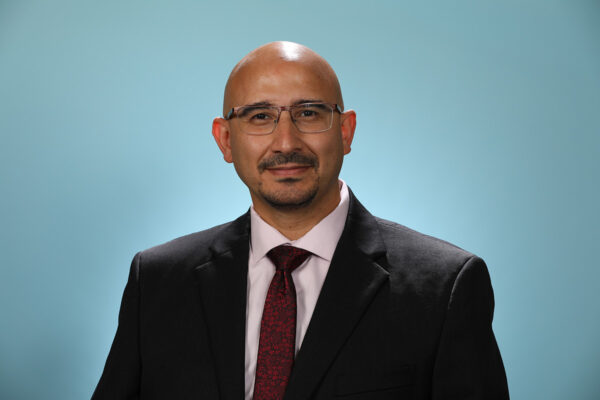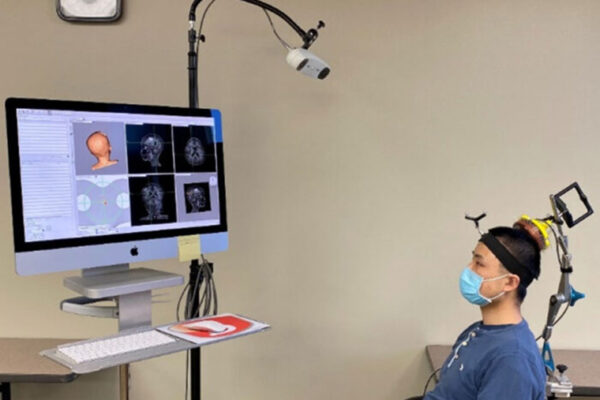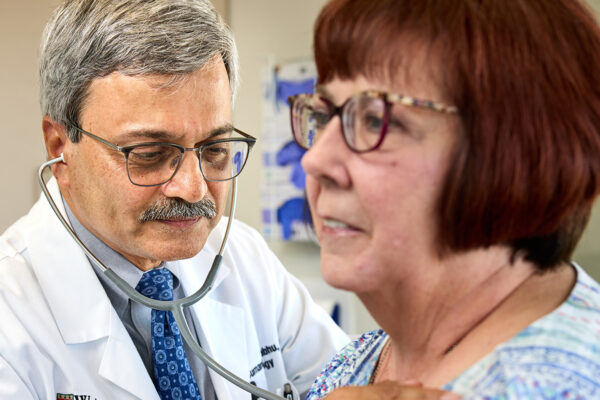Shedding light on mechanisms behind Alzheimer’s disease
Song Hu at the McKelvey School of Engineering plans to develop deep-brain fiber-optic techniques to investigate the cause of memory loss in Alzheimer’s disease.
An named AAHB fellow
Ruopeng An, an associate professor at the Brown School, has been accepted as a fellow in the American Academy of Health Behavior, the professional home for health behavior scholars and researchers.
Avidan, England, Miller elected to National Academy of Medicine
Anesthesiologist Michael S. Avidan, MBBCh, reproductive biologist Sarah K. England, PhD, and neurologist Timothy Miller, MD, PhD, all of the School of Medicine, have been elected to the National Academy of Medicine, one of the highest honors in the fields of health and medicine in the United States.
Brozanski installed as inaugural Gould professor of pediatric quality and safety
Beverly Brozanski, MD, of Washington University School of Medicine in St. Louis, has been named the inaugural Susan and James C. Gould Professor of Pediatric Quality and Safety.
Graduate student wins prestigious fellowship
The National Institute on Aging, part of the National Institutes of Health (NIH), has awarded graduate student Lizzie Tilden an F30 fellowship that supports physician-scientists in training.
Holehouse recognized by NIH for innovative research
Alex Holehouse, an assistant professor of biochemistry and molecular biophysics at the School of Medicine, will receive the New Innovator Award from the National Institutes of Health (NIH).
$8 million awarded to study root causes of brain cell death in fatal pediatric diseases
A large, multidisciplinary team at the School of Medicine has received a grant from the National Institutes of Health (NIH) to tackle complex problems in neuroscience.
Ellebedy to develop next-generation coronavirus vaccines with broad protection
Ali Ellebedy, an associate professor at the School of Medicine, and colleagues have received a $13 million grant renewal from the National Institutes of Health (NIH) for a project that will bring together experts from multiple disciplines across five research institutions to create better vaccines to fight against current and emerging coronaviruses.
Noninvasive, ultrasound-based brain biopsy is feasible, safe in people
Researchers at the School of Medicine and the McKelvey School of Engineering have developed a noninvasive technique called sonobiopsy that uses ultrasound and microbubbles to release biomolecules from brain tumors. A blood draw can collect the biomolecules to help inform treatment decisions.
Sumanth Prabhu
Sumanth Prabhu, MD, director of the Cardiovascular Division at the School of Medicine, is a heart failure specialist with a passion for patient care.
Older Stories
